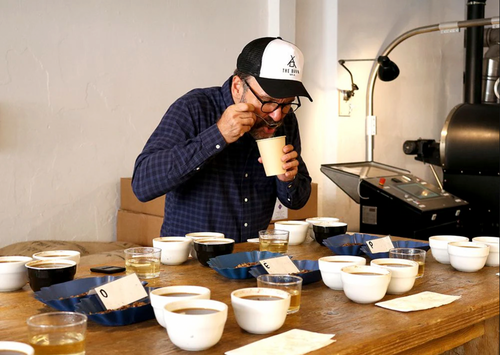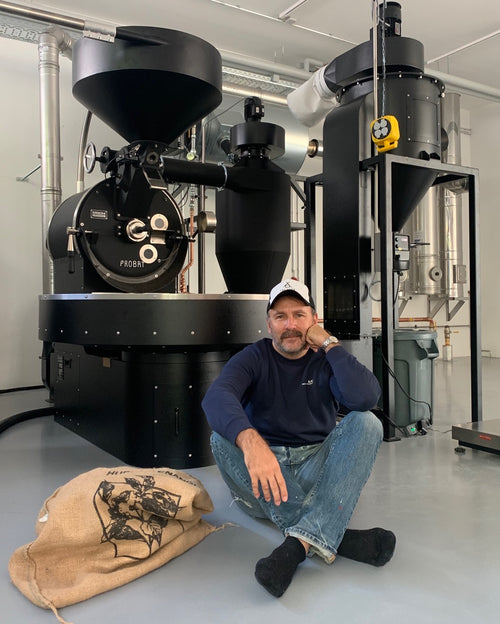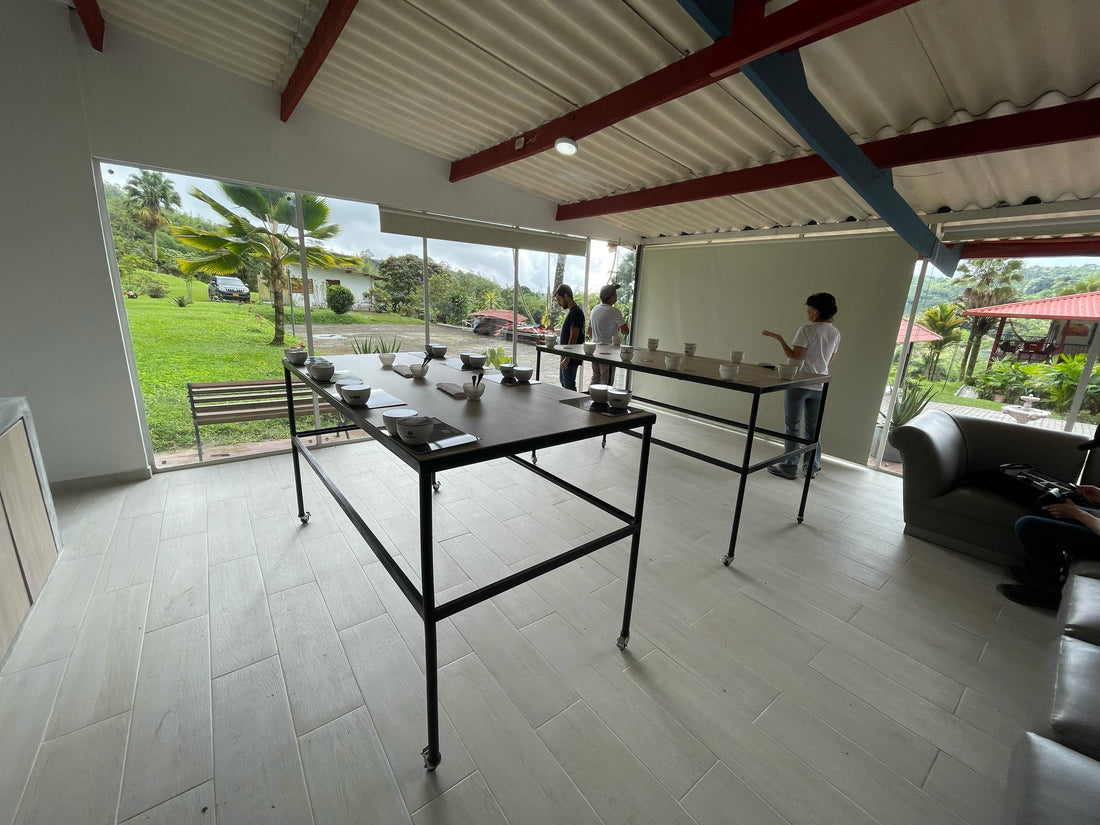In July our Head Roaster Garreth was in Colombia to speak at the prestigious Producer Roaster Forum and visit some of the very best coffee producers across the country: seeing first hand how quality and innovation continues to spread across the Colombian coffee industry.
Garreth at the PRF
At the PRF Garreth explored the ability of processing to mitigate the effects of a changing climate. From talking to producers on the ground, to his daily work in tasting and roasting coffee, Garreth has seen the increasing importance of the processing stage in coffee production. Across different farms and regions, experimental processing is already being used to help increase cup score and quality. As producers experience dry seasons with endless rain and drought during the wet months, they will need to adapt to survive. In the face of less predictable growing and processing conditions, experimental techniques have the potential to help deliver the quality that speciality coffee lovers have grown to expect.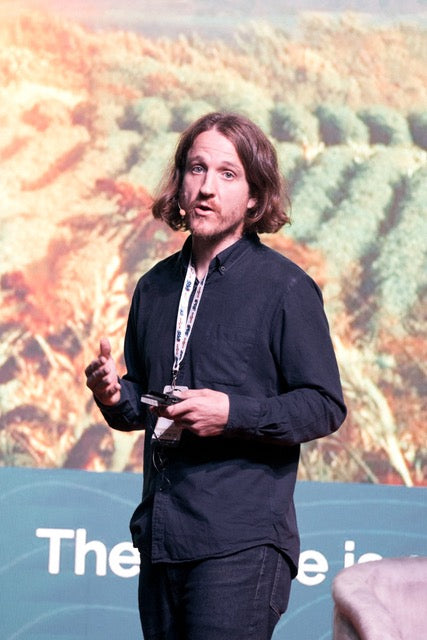

At the Source
Building relationships at origin and working in unison with coffee growers is at the heart of what we do. Visiting farms across the country, Garreth was able to see the painstaking work and innovation that Colombian producers are undertaking, as well as tasting some delicious coffees and exploring what might land in your cup soon…Working With Nature
Having previously featured as one of our incredible Masterpiece Coffees, the award winning La Palma y El Tucan farm is at the forefront of Colombian coffee. Named for the Emerald Toucan and endangered Wax Palm found in the area, the farm is dedicated to the protection and restoration of biodiversity on the farm. On the farm every process is done with respect for the environment around it. Work is done by hand or powered by donkey just as it has been done for generations before!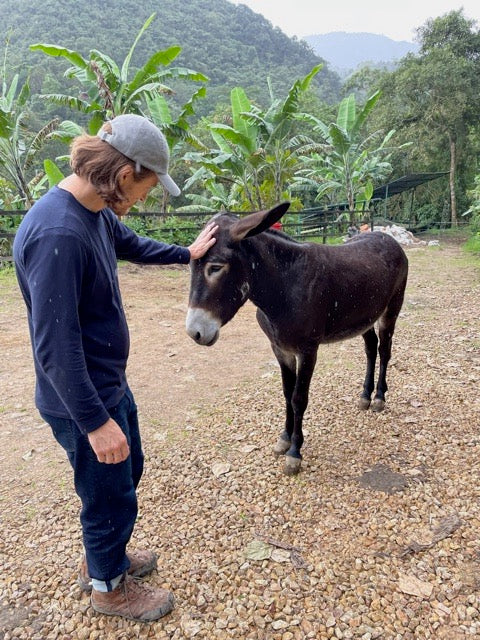

Innovative Processing
In the lush hills of Tolima, the Bayter family are pushing the boundaries of Colombian coffee at Finca El Vergel. Near the snowy peaks of the Nevado del Ruiz volcano, the farm benefits from a microclimate that is perfect for growing coffee. True proponents of new processing methods, brothers Elias and Schady have been at the forefront of experimentation with the Koji process. Using a native Japanese yeast found in sake and miso production, the Koji process aids fermentation during processing. This can lead to lower acidity and help intensify the natural flavours occurring in the coffee.El Diviso, Quindio
Situated on the steep slopes of Quindio, Linarco Rodriguez experiments with coffee variety and the production of a range of crops. Whereas Colombian coffee was once known for just Castillo and Cenecafe, Linarco has been experimenting with varietals including Pink Bourbon, Caturron, and Sidra - to name a few! His desire to experiment and meticulous approach to quality is the perfect example of the new wave of Colombian coffee producers.
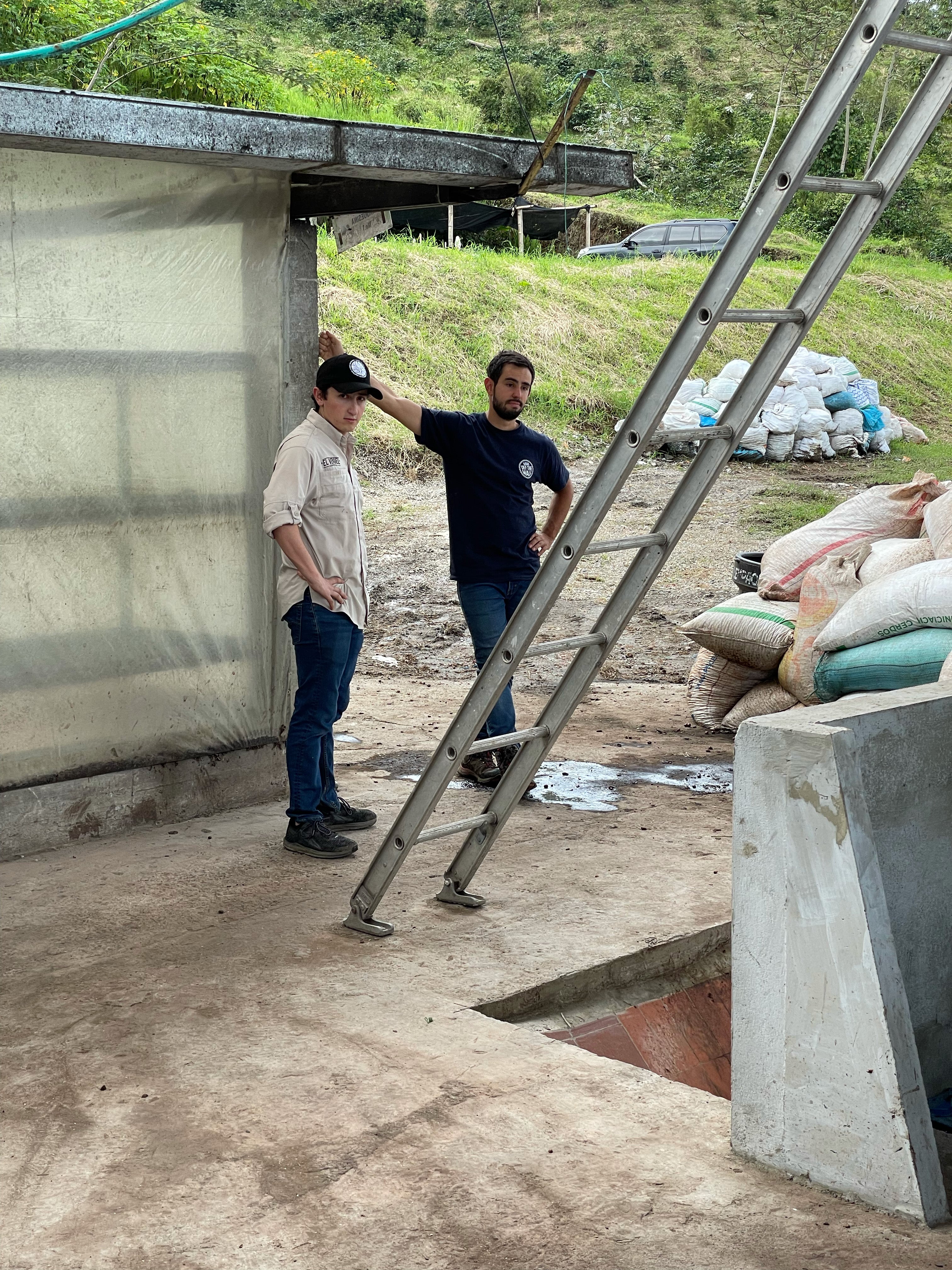
Running In The Family
At Finca Villarazo and the Santa Marta farm, brothers Carlos and Felipe work next to their father, Jairo Arcila. Amongst rich forest, coffee grows alongside mandarin, avocado, and plantain trees. Having been introduced to the world of coffee by their father, the brothers have pushed the farms in new directions. Despite some early reluctance, Jairo is now totally onboard with the innovation! Using anaerobic and natural fermentation, experimental processing with different fruits and yeasts, and a range of rare varietals, coffees from the Arcila family are ones to look out for.Looking to the Future
Back here in Berlin, Garreth will continue his work selecting and roasting coffee: seeking to represent the unique character of each individual farm in the best possible way. With our continual search for memorable quality, you can be sure that Colombian coffee will always be a big part of our range of single origin beans.
Sign up below to our newsletter and be the first to hear when our next Colombian coffee arrives!








